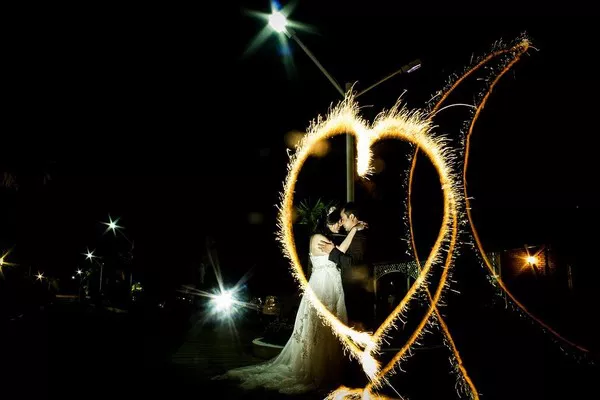Friendship and romantic love are two of the most profound forms of human connection, and sometimes the line between them can blur. Many romantic relationships begin as friendships, but how can you tell when a friendship is evolving into something deeper, like love? As a psychologist, I often encounter clients grappling with this very question. The transition from friendship to romantic love is complex and can involve both emotional and psychological shifts. Understanding the signs can help you navigate this process with clarity.
In this article, we’ll explore how to recognize when a friendship may be turning into love, using insights from psychology to guide you through the emotional terrain of changing relationships.
1. Emotional Intensity Begins to Increase
One of the earliest indicators that a friendship is transforming into love is an increase in emotional intensity. You might find yourself thinking about your friend more often, wanting to spend more time with them, or feeling a deeper connection. While close friendships naturally involve a certain level of emotional investment, romantic love often introduces a heightened intensity to these feelings.
In psychology, this shift can be explained by the brain’s reward systems. When romantic feelings develop, dopamine—a neurotransmitter associated with pleasure—begins to play a larger role in how we perceive the relationship. This makes interactions with the person more rewarding, and we start to seek them out more frequently.
Key Signs:
You think about them often, even when you’re not together.
You feel an increased emotional attachment and experience a sense of longing when they’re not around.
You prioritize their needs and feelings over others, even within your friend group.
2. Physical Attraction Begins to Develop
While friendship often lacks a strong element of physical attraction, romantic love tends to include it. You may begin to notice physical traits in your friend that you hadn’t previously paid attention to, or you might feel a desire to be physically closer to them. This could manifest as wanting to hold their hand, sit closer to them, or even feeling nervous about casual physical contact.
Physical attraction is a hallmark of romantic love, and its development can signify that your feelings are shifting beyond platonic friendship. However, it’s essential to recognize that this attraction is typically accompanied by emotional and psychological changes, rather than being purely superficial.
Key Signs:
You start to notice their physical appearance in a different light.
You feel nervous or excited during physical contact, such as hugs or touch.
You have a desire to be physically close, even in casual situations.
3. Jealousy Becomes a Factor
In a friendship, seeing your friend date or show interest in others might cause mild feelings of jealousy or protectiveness, but when these feelings become stronger, it may indicate that you’re developing romantic feelings. Romantic jealousy differs from platonic jealousy in its intensity and the sense of threat it carries. If you feel uneasy or even possessive when your friend spends time with others, especially potential romantic partners, it could be a sign that your feelings for them are more than just friendship.
From a psychological perspective, jealousy often arises from attachment. When romantic feelings develop, we begin to feel a stronger sense of attachment, and this can lead to discomfort when our “attachment figure” shows interest in others.
Key Signs:
You feel uneasy or threatened when they talk about or spend time with someone they’re interested in.
You experience pangs of jealousy when they show romantic interest in others.
You find yourself thinking about how their relationships with others might impact your connection.
See Also: What Characterizes Friendships in Middle Adulthood?
4. Increased Vulnerability and Emotional Disclosure
Friendship naturally involves sharing thoughts, feelings, and experiences. However, when a friendship turns into love, there is often an increase in emotional vulnerability and disclosure. You may find yourself sharing more intimate details of your life with this person, or they may become the first person you turn to during times of distress.
This level of emotional openness is often reserved for romantic partners, and if you’re sharing deep feelings or relying on each other for emotional support in ways that surpass the usual boundaries of friendship, it may indicate a shift toward love. Psychologically, this increased vulnerability is tied to trust and emotional intimacy, both of which are fundamental to romantic relationships.
Key Signs:
You share deeper, more personal aspects of your life with them than with other friends.
You find comfort in confiding in them about sensitive or emotional issues.
You seek their emotional support more often than before, and they become your primary source of comfort.
5. You Start Imagining a Future Together
One of the clearest signs that a friendship is turning into love is when you begin to envision a future together. In friendships, future plans are often casual—vacations, social events, or shared interests. But when romantic feelings develop, you may start imagining a more intertwined future, one that involves emotional commitment, living together, or even marriage.
Psychologically, this shift reflects a change in the nature of your attachment to the person. Romantic love often includes a desire for long-term connection, and imagining a future together indicates that you see the relationship as something that could become central to your life.
Key Signs:
You imagine what it would be like to be in a romantic relationship with them.
You think about how they might fit into your long-term plans.
You feel excited about the prospect of building a life together, beyond the scope of your current friendship.
6. You Feel Nervous or Excited Around Them
A subtle yet significant sign that a friendship may be turning into love is a change in how you feel when you’re around the person. In friendships, the emotional tone is often relaxed and comfortable. However, if you start feeling nervous, excited, or even self-conscious around your friend, it could be a sign that your feelings are deepening.
Psychologically, these changes can be linked to the early stages of romantic attraction, where the brain releases chemicals like adrenaline and cortisol that heighten feelings of excitement and nervousness. These physiological changes often accompany romantic attraction and can be a telling sign that your feelings have shifted.
Key Signs:
You feel butterflies or nervous excitement when you’re about to see them.
You become more self-conscious about your appearance or behavior around them.
You experience heightened emotions, such as joy or anxiety, when you spend time together.
7. You Feel Protective or Caring in a Different Way
Friendships often involve care and support, but when those feelings take on a romantic tone, they can intensify and become more focused on the person’s well-being and happiness in a deeper way. You may find yourself going out of your way to make them happy, or you might feel a stronger sense of protectiveness than before.
This kind of emotional investment is often indicative of romantic love. It’s not just about wanting to support them as a friend but feeling responsible for their emotional well-being, often because their happiness has become more personally important to you.
Key Signs:
You find yourself making more sacrifices or going the extra mile to support them.
You feel protective of their emotional or physical well-being in a way that surpasses normal friendship.
You experience a deep satisfaction in seeing them happy, especially when it’s because of something you’ve done.
Conclusion
Navigating the shift from friendship to love can be confusing and emotionally charged. It’s important to trust your feelings and take the time to understand what they mean. If you notice an increase in emotional intensity, physical attraction, jealousy, or a deeper emotional connection, these could be signs that your friendship is evolving into love.
However, it’s essential to approach these feelings with care. Communicating openly with your friend about your evolving emotions is crucial for maintaining the integrity of the relationship, whether it remains platonic or moves toward romance. Ultimately, understanding the signs of love and reflecting on your feelings can help you make thoughtful decisions about the future of the relationship.
Related topics:























